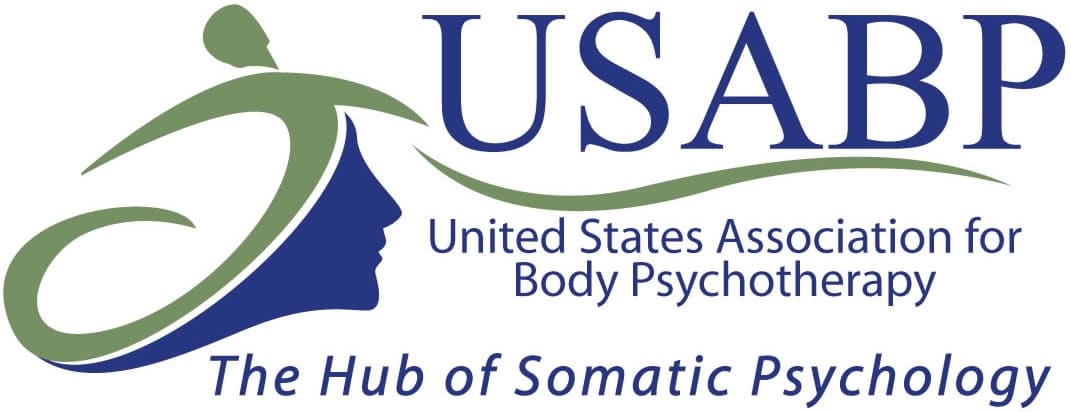The main difference is that counselling focuses on short-term, current issues and specific problems, while therapy is typically longer term and addresses deeper, more complex concerns and long-standing patterns. Counselling helps with stress, grief or relationship conflict using practical strategies. Therapy explores root causes in past experiences and patterns, and is often used to treat diagnosed mental illnesses.
Counselling Vs Therapy At A Glance
| Aspect | Counselling | Therapy |
|---|---|---|
| Focus | Current, specific issues and life challenges like grief, stress or relationship conflict | Deeper, long standing emotional and mental challenges, including chronic conditions or psychological disorders |
| Duration | Generally short term with a clear goal | Often longer term, sometimes months or years |
| Depth | Addresses immediate problems and teaches coping strategies | Explores underlying patterns, past experiences and psychological makeup |
| Goal | Problem solving, building coping skills and practical strategies for current challenges | Treating mental illness and addressing entrenched patterns of thought and behaviour |
| Common uses | Adjustment after loss, workplace stress, communication skills, decision support | Chronic depression, anxiety disorders, trauma, personality disorders, eating disorders |
| Approaches often used | Cognitive behavioural strategies, interpersonal skills training, solution focused work | Psychodynamic therapy, dialectical behaviour therapy, trauma focused methods, longer term CBT |
| Who it suits | People seeking skills and support for a specific challenge | People seeking in depth change or support for complex mental health conditions |
| Practitioner types | Counsellors, psychologists providing brief interventions | Psychologists, clinical psychologists, psychiatrists and experienced therapists |
| When to consider | You want targeted strategies and a short plan to get unstuck | You notice recurring patterns, long history of symptoms or complex presentations |
How Counselling And Therapy Are Similar
Both counselling and therapy are talking therapies delivered by a trained mental health professional. Sessions involve structured conversations in a confidential environment where you explore thoughts, feelings and behaviour, set goals, and practise practical strategies between sessions. Each can support mental health concerns such as anxiety, low mood, stress, relationship problems and low self-esteem. Both are collaborative, person-centred and grounded in evidence-based approaches like Cognitive Behavioural Therapy, Interpersonal Therapy and Psychodynamic Therapy. If medication is relevant, your practitioner may coordinate care with a doctor who can prescribe medication as part of a broader plan.
How They Are Different
Counselling typically provides short-term support for a specific challenge, while therapy often works in depth on underlying issues and complex mental health conditions. Counselling is usually time-limited and aimed at defined goals such as improving communication, making career decisions, or learning coping strategies after a stressful event. Therapy takes a broader and deeper view of psychological development and past experiences, working on patterns that drive current difficulties. Therapists typically treat people with complex or severe mental health conditions, such as personality disorders, eating disorders, or post-traumatic stress disorder, often over a longer period.
What Type Of Therapy Is Best For You
Start with your goals, your symptoms and how you prefer to work. If you want practical strategies for a specific behaviour or situation, a focused counselling approach using Cognitive Behavioural Therapy strategies or interpersonal skills training may fit. If you are seeking change at a deeper level or have complex mental health conditions, in-depth therapy such as Psychodynamic Therapy or Dialectical Behaviour Therapy can help with regulating emotions, understanding patterns and building new responses. For trauma, structured approaches that include exposure or skills for distress tolerance may be recommended. The best option is the one that matches your needs, your readiness and your resources.
Types Of Therapy
Cognitive Behavioural Therapy
Cognitive Behavioural Therapy examines links between thoughts, feelings and actions. You learn to notice unhelpful patterns, test beliefs and practise specific behaviours that improve mood and functioning. CBT is widely used for anxiety disorders, depression and specific behaviours that interfere with daily life.
Dialectical Behaviour Therapy
DBT was developed for Borderline Personality Disorder and is now used for a range of conditions that involve intense emotions and impulsive behaviour. DBT teaches skills in mindfulness, distress tolerance, emotion regulation and interpersonal effectiveness, sometimes in skills groups alongside individual sessions.
Interpersonal Therapy
IPT focuses on relationship patterns and roles. It helps when psychological issues are closely tied to grief, role transitions, conflict or social skill difficulties. You work on communication, boundaries and problem solving in current relationships.
Psychodynamic Therapy
Psychodynamic therapy explores how early experiences and unconscious processes shape current problems. Through the therapy relationship you gain insight into patterns, find new choices and reduce the grip of past experiences on present behaviour.
Other Talking Therapies And Supports
Depending on your needs, a practitioner may integrate Acceptance And Commitment strategies, trauma focused methods, Family Therapy or Support Groups. What matters is that the approach is matched to your goals, your learning style and your mental health concerns.
Which Mental Health Professional Can Help
Different practitioners offer different skills and levels of care. In Australia, psychiatrists are medical doctors who can prescribe medication and may provide psychotherapy. Clinical psychologists and registered psychologists provide psychological assessment and therapy for mental health issues and psychological disorders. Counsellors deliver talking therapy and practical strategies within a confidential environment. Social workers and family therapists provide counselling and system-focused support. Titles vary by jurisdiction, so look for a licensed therapist or equivalent registration and ask about scope of practice. Some practitioners can practise independently, while others work under supervision as they complete training.
Match qualifications to your needs. For complex mental illnesses or severe symptoms, you may need a psychiatrist or a clinical psychologist working alongside other supports. For specific challenges or short-term support, a counsellor or psychologist with experience in your key issues may be ideal. Practitioners will refer on if a different level of care is required.
Tips For Finding A Counsellor Or Therapist
- Clarify What You Want To Change – Write down the main problems, when they happen and how they affect daily life. Include any past treatment and what helped.
- Check Training And Registration – Ask about degrees, supervised practice and membership of an appropriate professional body. Confirm whether the practitioner can diagnose, provide talking therapies or prescribe medication in your setting.
- Ask About Approach And Fit – Good questions include which talking therapies they use, how goals are set, how progress is reviewed and what a typical session looks like. Fit matters because effective work relies on a collaborative relationship.
- Consider Access And Practicalities – Ask about fees, rebates if any, session length, availability, online options and cancellation policies. A few therapy sessions are often needed to judge fit.
- Protect Safety – If there is risk of harm to yourself or others, contact emergency services on 000 in Australia before arranging routine care.
Useful Websites For Your Search
Independent resources can help you find a qualified practitioner and learn about talking therapies. Useful Australian sites include Health direct, the Australian Counselling Association, the Psychotherapy and Counselling Federation of Australia, the Australian Psychological Society Find a Psychologist directory, Beyond Blue, Head to Health and the Black Dog Institute. These sites explain types of therapy, provide search tools for mental health professionals, and offer information on mental health problems, support groups and coping skills.
Help For Mental Health Concerns
If you need immediate help, call 000 in Australia. For 24-hour support, contact Lifeline on 13 11 14 or Beyond Blue on 1300 22 4636. If you are in emotional distress, speaking with someone now can reduce risk and help you decide next steps toward care.
FAQs
What is the difference between counselling and therapy
Counselling usually focuses on a specific challenge over a short period, while therapy often works more broadly and in depth. Counselling targets practical strategies and coping skills for defined problems. Therapy explores underlying issues, patterns and past experiences that keep difficulties going, and is often used for complex mental health conditions.
Who should I see for severe mental health conditions
Start with a practitioner who can assess risk and coordinate care, such as a psychiatrist or clinical psychologist. Severe or complex mental health conditions like personality disorders, eating disorders or post-traumatic stress disorder often require a team that can provide therapy, skills training and medication where appropriate.
Can counsellors prescribe medication
No, counsellors do not prescribe medication; only medical practitioners can. In Australia, psychiatrists and general practitioners can prescribe. Therapy and counselling can be combined with medication when needed to improve outcomes.
How many sessions will I need
It depends on your goals and the type of work you choose. Short-term support for a specific behaviour or situation may take a few sessions. Work on underlying issues and complex patterns can take longer. Your practitioner will review progress with you and adjust the plan based on your goals and responses.
Is online therapy as effective as in person
Online talking therapies can be effective for many people when delivered by a qualified practitioner in a private setting. They suit those who prefer home-based care or have limited access to services. Choose a confidential space, test your connection and confirm the practitioner’s registration and approach.
What is Cognitive Behavioural Therapy
Cognitive Behavioural Therapy is a structured talking therapy that teaches coping skills to change unhealthy patterns in thoughts and behaviour. CBT is commonly used for anxiety, depression and specific behaviours that disrupt daily life. You and your therapist develop strategies, practise between sessions and track progress toward agreed goals.
Conclusion
Counselling and therapy share a core aim to improve mental health, but they differ in scope, depth and duration. Counselling usually targets a specific challenge with practical strategies over a short period. Therapy often explores underlying issues in more depth and is suited to complex mental health conditions. Both involve working with a trained mental health professional in a confidential environment, practising coping skills and reviewing progress over time.
If you want personal guidance on which path fits your current difficulties, contact Energetics Institute to discuss options and arrange your first session. A practitioner will help you decide whether focused counselling or in-depth therapy best matches your goals and resources, and set a plan that supports your wellbeing.
Related Posts
Fees And Rebates
We offer cost-effective solutions that can fit within your budget. The insights and skills acquired in therapy can continue to positively impact mental and emotional health long after the therapy sessions have ended, making it a truly worthwhile investment in yourself.















